In this article, I’m going to discuss the fundamentals of gardening for self-sufficiency. Most folks are grossly unprepared to meet their family’s food needs in the case of an emergency. At the same time, many underestimate what is required to grow or raise enough food to feed their family. This article will explain what self-sufficient gardening looks like, and how to get started.
The food supply is a delicate thing. While the US is one of the most agriculturally productive countries in the history of the world, a number of recent events have highlighted how vulnerable our food supply is to drought, pestilence, economics and government policy.
Food prices have seen dramatic fluctuations in recent years, primarily in response to natural disasters, drought, and government mandates. And, according to all indications, this insecurity is only going to get worse.
To complicate the issue, a smaller percentage of the population is engaged in agriculture today than at any other time in the history of the world. The result is a knowledge gap that has removed the knowledge and ability to farm from a majority of the population.
In essence, we’ve forgotten how to provide for ourselves, and we take for granted that the supermarket shelves will always be stocked with affordable food.
Some folks realize the potential danger in over-reliance on a potentially insecure food supply chain. To compensate for the potential disruption of this supply, many of these people choose to store food, relying upon a fixed, finite resource to feed their family. This is a fine short term strategy, and will supplement or replace food purchases for as long as supplies last, but usually isn’t a viable long-term strategy.
Stored food also raises certain health concerns when consumed for long periods of time. Whether food stores are stolen, spoil, or simply run out, they are no substitute for a long-term, sustainable food production plan.
For people interested in being able to provide for their family’s needs, a better solution must be found, one that provides a consistent source of nutrient rich food year after year.
Imagine knowing that all of the food you need for the year is stored in your root cellar, or still hidden in the soil of your garden. This has been the comfort of small farmers for thousands of years, and it is a peace of mind that many today should consider reclaiming.
Starting Your Own Crop
A large garden or small farm can typically provide almost anything a family needs. Depending on where you live, and the crops that you can cultivate, most people require between 0.4 and 0.6 acres of fertile land to grow enough food to meet one person’s dietary requirements for a year.
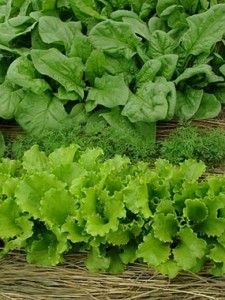
To know what you must grow, you must know what your family will need to survive and stay healthy. A good assumption for anyone trying to meet their families nutritional needs, each person will require around 2000 calories per day. To achieve this, we will have to grow enough produce that this need can be met.
This means that we’ll need to grow high calorie crops in addition to nutritionally dense crops. To start, you must put together a crop lineup that offers the maximum productivity (in calories and nutrition) and minimal input per square foot of garden space.
Calorie Dense Crops
Here is a list of productive garden vegetables that I would recommend based on that space available and the amount of labor required to harvest and cultivate them. Calorie dense crops should compose around 80% of your garden. These crops should be a mixture of potatoes and grains. In areas where grains cannot be grown, potatoes can be substituted, and in areas where potatoes cannot be grown grains should be substituted.
Potatoes: Potatoes are at the top of the list. Potatoes are one of the most calorically dense crops you can grow per square foot of garden space. Fairly easy to cultivate, harvest and store, they grow well everywhere from Alaska to the Southern United States. Potato production should compose between 50-65% of your survival garden (around 11,000 square feet).
Grains: (15-30% of garden area, around 6,000 square feet)
Corn: Corn is a productive grain that’s much easier to harvest for beginners. Corn is a calorie dense crop that stores well and grows well in most of the US. Corn and other grains should compose between 15-30% of your survival garden area.
Barley: Barley is a hardy, grow-anywhere grain that fed much of the northern hemisphere before the introduction of wheat. It’s highly tolerant of a number of soil conditions and is adapted to a number of climates. Barley also takes up a great deal of room though, and requires specialized harvesting, and processing. If you have plenty of room, barley is worth considering.
Winter Wheat: Similar to barley, winter wheat is a great northern grain crop that is calorie dense. However, like barley, it requires a lot of room for cultivation as well as special processing.
Legumes are another important part of a survival garden. These crops are typically beans, and they are an excellent source of protein as well as nutrients. In addition, these crops fix nitrogen, so using them in rotation with other crops improves the fertility of your garden.
Calorie/Protein Crops:
Peas: Shell and snap peas are a valuable addition to the garden. As nitrogen fixing legumes, they also increase the fertility of the soil that they are grown in. They are relatively nutrient dense and are relatively simple to grow.
Soybean: Another legume, soybean is easy to grow and productive. The protein rich beans from this crop are easy to store and can eaten in a variety of ways, including raw, cooked, dried and ground. This plant also increases soil fertility where it is grown (380 calories/cup of soybean).
Field bean: Field or dry beans represent many different types of dry bean, with different types well adapted to environmental conditions in a variety of locales. Dry beans store well and are nutrient and calorie dense (610 – 660 calories/cup of dry beans; excellent protein content)
Nutrient Crops (10% of garden area)
Carrot: Carrots are an excellent easy to grow root crop that store well and are nutrient dense. They are an excellent source of beta carotene.
Beet: Beets offer a nutritional double whammy, offering a great deal of nutritional value in the form of beet tops or greens, while the storage friendly beet roots offer calories and nutrients.
Brussel Sprouts: Brussel sprouts are a good spring and fall crop for survival and victory gardens, tolerating cool and cold weather, and keeping well into the cold months- often on the stalk. Some varieties bear prodigiously, offering excellent production per square foot of garden space. Brussel sprouts are great source of minerals and nutrients and a great addition to any survival garden.
Cabbage: Cabbage is another cold-tolerant crop that will tolerate a frost and stores well. Some varieties grow heads up to 22 lbs in size, offering excellent productivity per square foot of garden space.
Garlic: Garlic has a surprisingly high calorie density, can be grown in a broad variety of climates, is simple to cultivate and stores very well. It also has health benefits and tastes great. Consider adding garlic to any survival garden.
Squash: Along with beans and corn, squash was one of the original “three sisters” in American Indian agriculture. Squash are vining crops that store well and have a good balance of nutrients and calories. Consider trying pumpkins and melons in addition to squash.
Other Crops: There are a number of other great crop selections for victory gardens and survival gardens. When choosing crops, take into account the caloric density of the crop – i.e. how much energy is stored in the crop, and nutritional qualities of the crop. Remember that staple, calorically dense crops will form the core of your diet, with nutritionally dense crops keeping you healthy.
Also consider how densely the crop can be planted- i.e. how much you can produce per square foot of garden space.
Growing these crops in these proportions will supply a single person with all of the calories and nutrients not just to live, but to live well. More Americans need to consider supplementing their food purchases, if not replacing them. Most folks are not prepared to provide for their family if the food supply is disrupted.
By planting these crops, you can take charge of your food future and take part in this old American tradition of self-sufficiency.
So here are the beginning plans for a victory garden, the launch pad for taking charge of your food supply. You do not need to depend on an unreliable or overpriced food supply. If you follow these guidelines you’ll be on track to produce enough to feed yourself. The results may not just be life saving, but life changing. There is a great deal of power in having a garden.
This article has been written by Nate Storey for Survivopedia.


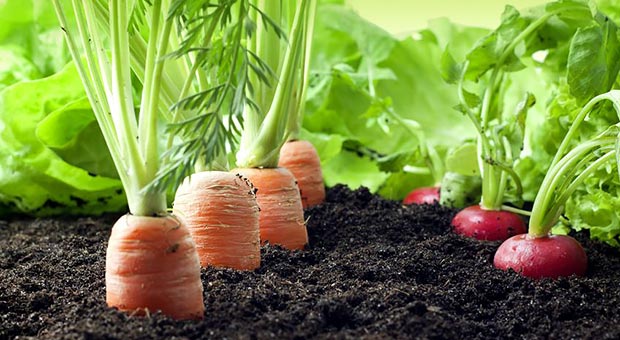
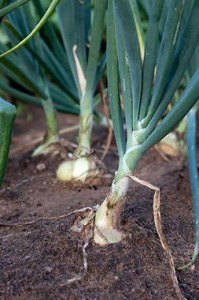

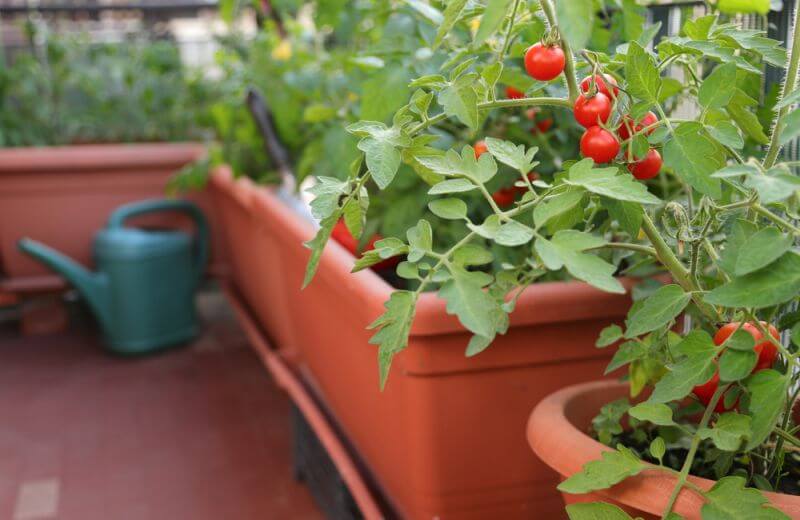
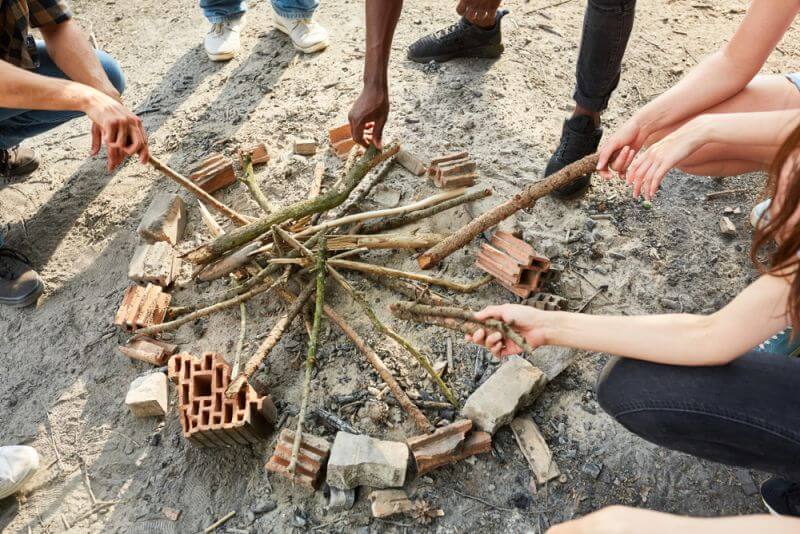

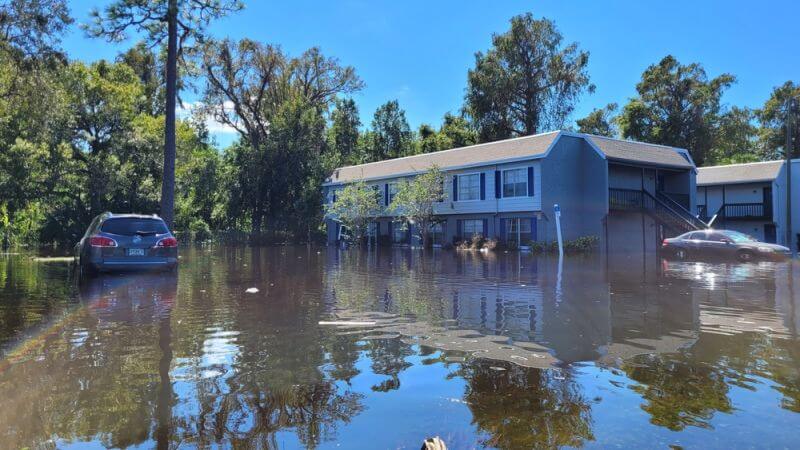

duggy dugg | May 20, 2013
|
kacper advocates geodesic domes instead of convenntional greenhouses..is there a growth advantage with geodomes or is it just the storm resistence of g-domes ?
chemman | June 4, 2014
|
I have a geodesic dome greenhouse. The storm resistance is a major feature for its use. We have two windy seasons a year and get sustained winds upwards of 40 mph and gust over 55 mph. Mine also use Solex as the covering which yields better growth of plants. It has been in operation for 4.5 years now. It is a passive 4 season model using a 800 gal water tank. A couple of years ago we had a bout of very low temperature (-20 at night and highs of 14 during the day). The greenhouse never went below 45 using only the passive system. Expense may be an issue though. The 22 ft. diameter one I bought was 10K. You might consider building a modified Earthship using tire walls for the north and half of the east and west walls and then covering with Solex or a similar glaze the the rest. Probably get by with 1K for total cost that way.
radarphos | July 21, 2014
|
Where do you live?
Tim Wilson | May 20, 2013
|
Great information! Thank you very much for sharing the best size of a garden and mix. Very helpful to we newbies.
Brian | May 20, 2013
|
Just getting started I need all the help I can get. If everone would be a grazish as you we probably could make it through a crisis. Thanks
Brenda | May 20, 2013
|
Thank you. I was uncertain as to whether I was going to grow potatoes or not…now I will.
Brent Naseath | May 20, 2013
|
I am a raw vegan. My wife and I grow most of the food we consume year round. As a raw vegan, it is important to me that I get enough protein. The article above is completely WRONG. It does not come from experience or knowledge, it is just a repetition of the misinformation typically taught and passed along, especially about protein and what type of protein and calories you need. You need more than just calories. And you NEVER need corn, potatoes, soybeans, wheat, barley, etc. The idea of growing them and harvesting them is simply absurd and is based on our commercial agriculture. Use the Square Foot gardening system to grow and rotate your crops. Mix your own perfect soil. Grow different varieties of heirloom spinach, romaine lettuce, and dino kale and you will have an abundance of protein. There isn’t space here to refute the standard, but ill-informed information in this article. You can add tomatoes, cucumbers, squash, peas, and carrots. All of these are easy to grow, easy to regrow from seed (let a few plants go to seed), and give you fresh good to eat. I also recommend avocado trees, fruit trees, and nut trees. Nuts are easy to store and if you plant Hass, Fuerte, and Reed avocado trees, you will have avocados all year round (if you live in a climate that supports them) and you can practically live on avocados and they are a good source of EFAs. If you want to grow a commercial type crop that stores well, grow bush beans or garbanzo beans. Get organic ones, soak them, and plant them. Then you know you can harvest the crop and plant some of those to keep it going. I wish you all the best.
Al | May 20, 2013
|
Thank you Brent for your post. We are building an aquaponics GH and were leaning your direction with regards to planting fruit trees and the green leafy stuff. Not being vegan we planned on farming fish
for protein. The info on the
varieties of avocato trees to plant to yield year round fruit was most helpful.
Planting some potatoes outside is feasible fir most but while we live on 2 acres, it is in the mountains where most of the land is not cultivatible. City dwellers also do not have room to grow grains and need to store them. Certainly we should not need to be self reliant forever – only till the tribulation passes.
Darryl C. | May 22, 2013
|
Potatoes… I grow then in tires, 2 high… 1st tire plant potatoes, when the plants grow above the soil use straw/hay to let the plants grow… cover with more straw/hay till the plants die… a second tire high may or may not B needed… white…purple…red… sweet..>>> I have grown all
David ely | May 8, 2014
|
My grandfather grew potatoes in this manner, sometimes using tires or not. But he did use straw and had great results! If peanuts grow in your area plant some too, they fix nitrogen also. Alternate protien sources to farm are worms, apple snails, pidgeons and guinea pigs. All eat scraps and prepared right are tastey!
Susan smith | May 21, 2013
|
It’s a good list to begin with as he says. Most people don’t think they can garden or don’t want to take the time to try it. And, most people don’t want to be vegan, let alone raw vegan. It’s great that you do, must most will not do it. I can’t tell you the number of people I’ve asked where they think their food comes from and they seriously answer “from the market”. And of course there are exceptions to any rule and any list. Those that can’t eat wheat have other choices. I am quite certain this is an article to help people get inspired and motivated to grow their own food.
Janice RuFFolo | May 21, 2013
|
Great comment Brent Naseath thanks for posting it! I agree with you completely. The only calorie dense food on the list I would grow is the wheat for wheat grass juice and perhaps barley if I had space. Also being of a different dietary inclination (as you and your wife) the garden I am planning is primarily nutrient dense – as is the food I consume now.
johnny | May 21, 2013
|
Yes, I am confused how a person can grow vegetables year round with only 8 hrs of light and no heat. You need heat and Lights Indoors or it can’t work, and if we have a EMP, then what?? And Brent is Exactly Right, I am also a vegetarian and a disabled vet with a lot of experience growing indoors. I guess if you are rich, and live off the grid with lots of sky lights it might work.
Old Goat | May 21, 2013
|
My home place is 5 miles north of Interstate 20
and 50 miles east of the Mississippi River
Is there a variety of avocado suitable to grow
to harvest for my region ? Any suggestions of a supplier?
Respectfully
Old Goat
Camillia | May 21, 2013
|
Hello Old Goat,
Avocados cannot tolerate long periods of cold weather. Frost does not particularly hurt them although the leaves will turn brown. The trees grow to be very large. I have not seen them grown north of Lake Okeechobee in Florida. This is also true of Mangoes, Sapodillos, bananas. They are all tropical fruits.
Camillia
nanoe_kanetsugu | June 29, 2013
|
Hey Old Goat, there may be hope! See http://www.hort.purdue.edu/newcrop/morton/avocado_ars.html — huge number of avocado types these days, and doubtless you’ll find something which might work. They are big trees, though, and generally require a few years before bearing fruit.
Not that you asked, but bananas work well in greenhouse situations such as earthship planters — which are basically graywater systems with some soil on top to structure the plants, much like aquaponics. Look for DWARF bananas, they grow and fruit faster and reach about 8-12 feet. Complete info at http://www.tropicalpermaculture.com/growing-bananas.html
Mangoes definitely work in these systems as well, meaning structured graywater planters. However, again it takes time and headroom to grow them – and in this case, heavy pruning to keep them from busting up through the greenhouse roof. http://www.tropicamango.com/mangos.html Good luck to all!
TARA | May 26, 2013
|
I think this article is JUST concerned with human survival. Not whether or not it is friendly to any other species on earth.
For the purpose of surviving (based on caloric needs) things like corn and potatoes are good. Lots of calories per square foot of growing space.
I used to be a weight loss counselor/nutritionist. I loved helping people lose weight for their health, and for how it makes them feel about themselves. And I still teach those principles to my friends, or anyone who asks, regarding weight loss and healthy foods.
Corn and potatoes are NOT good weight loss foods. Nor are they terribly healthy for you.
But they WILL keep you alive much better than greens (which are highly nutritious, but not a great source of energy, if you’re trying to survive).
And if surviving today, in order to continue the fight tomorrow, is the objective, then corn and potatoes are a very good, easy to grow in most climates, easy to store, solution.
TARA | May 26, 2013
|
And I guess I should say that I also believe that human survival at the expense of eating some other mammals or fish is OK.
I do NOT intend any disrespect toward vegetarians nor vegans.
I actually think they are to be respected for their respect for life.
However, I also believe that “evolution” and “creation” never have to be at odds, because they are both obviously true. They GO together.
But here is why some people don’t agree with me:
If you agree with evolution (but do not agree with creationism)… then here is why it’s ok for mammals to eat other species:
Whoever has the biggest claws, or can run the fastest, or has the biggest brain (to outwit those with bigger claws or faster legs) WINS.
That is the foundational rule of evolution. If you can outrun, or outsmart, your prey, then you get to eat him.
Survival of the fittest. Or brainiest (which is: able to outwit, though maybe not outrun. Which still, in evolutionary terms, means fittest for survival).
So humans should never feel “guilty” for eating other species. It makes no evolutionary sense. (Why would an evolutionist feel that way, anyway? What is guilt, but a moral construct?) If you are faster or smarter than they are, then evolution has destined them to be your food source.
And the more things you can eat, the more likely it is that you (and your offspring) will survive.
Janet | March 12, 2014
|
Evolution is a theory. There has never been found any fossil remains that would prove it is scientific fact. As John Paul II wrote – one may believe in evolution if one believes that at some time in this process a soul was infused in man. A soul that will live forever in eternity. Focusing on leading a good life while alive to prepare us for eternity is more important than theory.
David ely | May 8, 2014
|
Evolution has been proven, far beyond Darwin in fact. All life has the divine spark. To think Man has it only is to deny most of Creation. Also that argument about eating flesh justified by evolution was il conceived and not well thought out.
Mike Austin | May 28, 2013
|
You are exactly right. I am not a vegan but I know most of the crops like corn and wheat/barley are not efficient to grow either. Beets, peas, kale, sprouts, tomatoes, squash and the rest you mentioned are nutrient dense and easy to grow in a variety of soils and containers if needed. You should have written the article….
Trenten | May 20, 2013
|
Great job Nate. Looking forward to more great info.
Linda | May 20, 2013
|
I have a small garden and will usually put out 2 – 10′ foot rows of sweet potatoes. Last year off those 2 rows I got 6 gallons of potatoes. They stored all winter in the garage and when they started sprouting in the spring, I just cut them and planted them this year. Works great and they taste really good. After digging in the fall, allow them to cure for a couple of weeks for the best flavor.
radarphos | May 6, 2014
|
Golly Linda (and all other responders who fail to report where they live),
An opinion might speak volumes to others who live in your climate; but without stating where one lives, does expressing an opinion matter at all??? I live on the state line of WI/IL, which I believe is also the border of Climate Zone 4 and Zone 5. Since I’m on the WI side (within one mile) I hedge the “growing bet” with Zone 5 recommendations.
micheal | May 20, 2013
|
How do you make an indestructable greenhouse so that which you grow will not be stolen??????
Terry | May 20, 2013
|
Unfortunately because of gout I can not eat many things. Corn, beans and peas are some of them even though I used to eat them and would like to eat them.
Paul Coates | May 21, 2013
|
11,000 sq ft. !!!!! for potatoes and 6000 sq ft. for grains. WOW!!! just how big do you think folks make their aquaponic supply units. Not trying to sound critical, but I’m fortunate, and so far most others I’ve met, to have an area of 10’x10′ or 100 sq ft. in a residential neighborhood.
Matt | May 22, 2013
|
They talk about a vertical aquaponics garden on the website and i forget where else i have seen it whether in the videos or whatever but if you go vertical and you have a 10×10 area you can go up to probably 4 feet to increase your area. I’m not a math major and I don’t know how the numbers would add up but it should net you more than 100 sq feet.
Just an idea? I’m no expert. I plan on building my first aquaponics set up for my parents this summer to see how it pans out. They always try gardening but fail so I bought the video series and I hope that they like it so we can set up a good sized area in the back yard for several 10×10 areas.
Patricia Lanza | May 21, 2013
|
Nate, Great article! Please refer folks to Lasagna Gardening to help them with soil prep. There are millions who don’t know how easy it is to get the garden ready to plant and that you don’t need a lot of money to prepare for a garden. Keep up the good work. Thanks, Pat
Lou Goode | May 21, 2013
|
I need to know what you have to offer to help me and my family survive. I read every article and obtain alot of knowledge. My heart felt thanks for these articles.
pat Kisch | May 21, 2013
|
I am considering trout for aquaponics setup. Is the IBC tank suitable for trout? Will they reproduce or would fish supply be limited to what is initially put in? How can trout be obtained?
Thanks. Nate.
Leo White Bear | May 22, 2013
|
Actually, theIBC really will not work well for many trout if any at all. A more circular tank would be more appropriate . It is not really the depth that is of concern but the rounded corners will decrease the current. We need to remember that trout like brook, browns and even the rainbow originated from cold running streams. For optimum growth and a stressless environment a circular tank will be more appropriate for these species.
DON MAXWELL | May 21, 2013
|
I AGREE WITH BRENT.THERE IS A LOT LEFT OUT OF THE ABOVE ARTICLE.WE ARE PICKING TOMATOES ,PEPPERS ,SQUASH AND ONIONS
OUT OF OUR GARDEN NOW. BEANS WILL BE READY IN A FEW WEEKS.
PLANTED IN MIDDLE OF FEB. LUCKED OUT ,HAD NO FREEZES FROM FEB ON . LIVE IN THE TEXAS HILL COUNTRY. OUR GARDEN IS 20 BY 30 WE CAN A LOT OF FOOD FROM IT. GET POTATOES FROM POTATOE SHED IN NEAR BY TOWN. CANNED 200 POUNDS LAST YEAR.WILL DO THE SAME THIS YEAR.CAN GROW POTATOE S IF NEED BE.GOT A FEW FRUIT TREES ALSO.
WITH CHICKENS AND THE MILK GOATS AND A DAIRY COW ,WE COULD GET ALONG VERY WELL WITH OUT ANY PLANTED GRAINS…DM
Leo White Bear | May 21, 2013
|
All these vegetables are well and good for people that do not have many health issues. In my type of helth difficulties potatoes, corn, most grains like wheat and barley are not an option. I am not alone with these health issues. You must decide which vegetables you will actually be consuming and plant accordingly. I agree that we must plant food that is caloric power houses to get the most of our survival gardens. Just keep in mind what is good for most may well not be good for all.
GingerB4 | January 9, 2014
|
Think trade if you have the space to grow something and wind up with a lot.
There will probably be instances where you need something and can use those “extras” to barter. You never know.
healthiest juicing recipes | May 23, 2013
|
Write more, thats all I have to say. Literally, it seems as though you relied
on the video to make your point. You definitely know what youre talking
about, why throw away your intelligence on
just posting videos to your weblog when you could be
giving us something informative to read?
Joe Hamilton | May 26, 2013
|
I’m building my hydroponics garden with IBC’s . I’m looking at 3 grow beds and 1 tank for my fish. I’m going to grow mostly lettuces, cabbage, sprouts, spinach, tomatoes,spices and what ever else I can. I wanted trout but because I live In San Diego I’m told the water will get to hot. So I am looking at Tilapia. I’m told that I can keep 100 to 150 fish in an IBC. The water will nourish my beds. I don’t have .5 acres and am wondering how much produce I’ll harvest from my 3 beds? I have 4 adults in my home. Do I need more beds?
Patrick | August 24, 2013
|
Hi Joe, I live in San Diego as well and have the same concern. In Spring Valley it can get 110+ a few days in a row. The other is the small yards, my neighborhood was built in the 50’s so I have a back yard with a little more room than these new track homes with only a few feet in the back. Is your IBC hydro up and running yet? I saw that system for putting to clay pots together and wonder if there is a system for under the IBC to keep them cooler?
Good luck
Dennis Kramer | May 27, 2013
|
Having a survival garden is really an investment in allot of time and energy. Having a supplemental garden in town is fine as we have done in the past, but is not a survival garden. Most of the produce raised will most likely be immediately consumed ,perhaps bartered, or potentially stolen in a survival situation within the urban setting… A neighborhood garden may be more appropriate if you might be considering security reasons. Remember, we are calling this a survival garden, and the garden itself must survive for us too.
Demetrius | June 1, 2013
|
Yes! Finally someone writes about south indian vegetarian recipes.
Read Significantly more | June 13, 2013
|
Read Significantly more…
The Survival Garden: Fundamentals | SurvivoPedia…
Antonius | June 28, 2013
|
Hi
For those wishing to grow potatoes in very limited space use car tyres, if you run some course shade cloth or open weaved material around the beading this will allow the roots to access the water retained in the bottom of each tyre and prevent the soil from entering this reservoir. Use good sandy loam not too rich in humus material, cut 4 good size seed potatoes in half exposing at least 2 shoots each and place on top of 4 inches of the soil around the edge 3 inches from rim. Add soil to level of tyre when shoots appear add another tyre and fill with more soil, this you can do up to 4 tyres high. Wait for top to die right off before harvesting the potatoes. If placed in warm sunny position, regularly watered you can get up to 50 kilos of potatoes and in temperate climate grow them all year round. The black tyres absorb heat from the sun to keep soil warm even during frost season. Pontiac potatoes are best results for me but other types may well do. Cheers from Australia, GYRO
Ramon Hardsesty | June 30, 2013
|
I am getting an Aquponics system ,and so far it looks good.. I had to find the fish to put into it put so far the goldfish is doing a good job …. Try it you maybe surprised at what you get …
Pingback:Growing Food in Different Climate Zones | Wichita Observer | August 12, 2013
|
Patrick | August 24, 2013
|
This is a good article and everyone should pick and choose what they need from it. It says in the beginning “Fundamentals”. a point to take from this is do something, anything, and use it over and over. Printing this out and sticking it on a shelf for “dooms day” is just a fire starter for later that night. I think of myself as green(new) at this but always willing to watch and learn from multiple sources, try, fail, learn, try again, repeat.
Ernesto | August 26, 2013
|
Wonderful beat ! I would like to apprentice even as you amend
your web site, how could i subscribe for a weblog website?
The account helped me a acceptable deal. I had been tiny bit acquainted of this your broadcast provided vivid clear concept
IT Support Aylesbury | October 18, 2013
|
It’s an remarkable piece of writing designed for all the web visitors;
they will obtain advantage from it I am sure.
Lala | May 27, 2014
|
One other thing I like to grow and eat is a (round) Tokyo Cross and a short dicon radish.. I pick SOME of the tender young leaves that spice up my salad and then have the radish itself raw or cooked in a soup etc. Let’s not forget Swiss chard can eaten raw or green. In a SHTF situation you may not have/want a fire and you will want fast growing versatile food source. I can get several crops a year .. plus my longer growing trees and crops
The time to learn to garden/live off the land is NOW! …before any crisis.
Pingback:Tomato Survival Vertical Gardening Pdf | September 6, 2014
|
Pingback:Hydroponics – A Peek Into The Future Of Gardening | Survival skills, survival guns, survival guide | October 16, 2014
|
Pingback:Survival Gardening: Plants to Grow This Spring - Survival Life | Outdoor Survival Gear & Skills, SHTF Prepping | March 2, 2015
|
Pingback:Survival Gardening: Plants to Grow This Spring | My Emergency Preparedness Blog | March 2, 2015
|
Pingback:Survival Gardening: Plants to Grow This Spring » Survival Gear & Food Storage | March 2, 2015
|
Pingback:Survival Gardening: Plants to Grow This Spring | Home Preppers | March 2, 2015
|
Pingback:Survival Gardening: 20 Plants to Grow This Spring | I Am Getting Prepared | March 2, 2015
|
Pingback:Survival Gardening: 20 Plants to Grow This Spring | Home Preppers | March 3, 2015
|
Pingback:Survival Gardening: 20 Plants to Grow This Spring - Survival Skills America | June 22, 2015
|
Pingback:The Survival Garden: Fundamentals - Apocalypse Supplies | December 17, 2015
|
addison | January 1, 2016
|
Great comments and information
Pingback:Basic Survival Food From Your Garden: Beans | Prepper's Survival Homestead | June 15, 2016
|
Pingback:8 Natural Remedies For Gingivitis | | disasterdefense.us | June 22, 2016
|